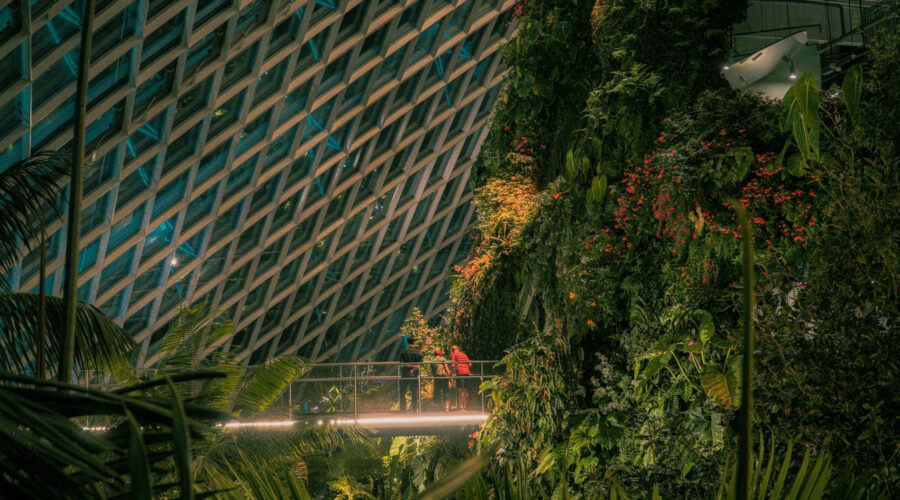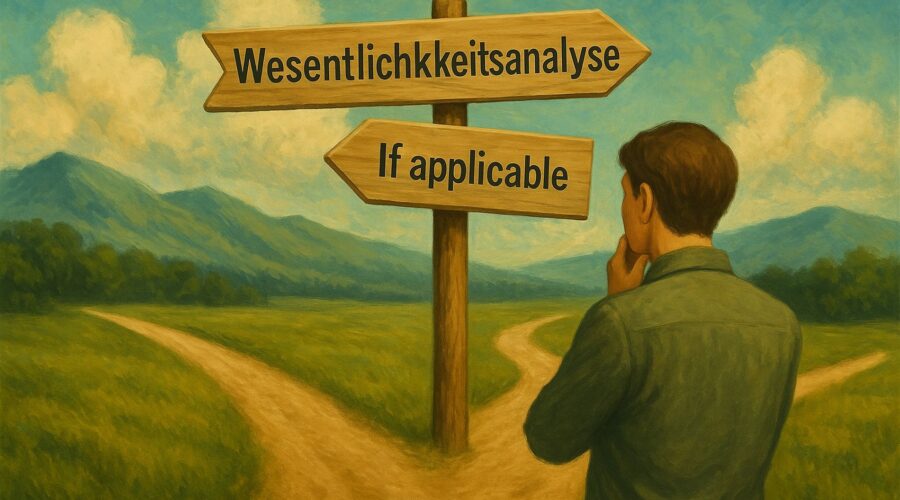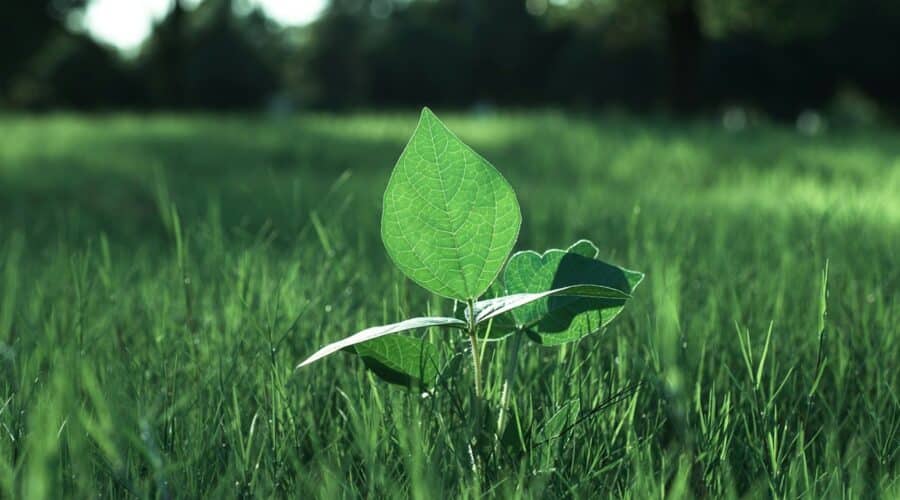Since 2015, plant values has been supporting the process and the players involved in the Dresden City of the Future project.
Dresden on the way to becoming a city of the future
In this blog post, we trace the development of the "City of the Future Dresden" and provide an overview of the process. We show how this process is evolving into a transformation of society as a whole towards the Sustainability fits in. We explain how plant values is supporting the City of the Future project and provide an outlook on the next steps.
We also provide tips for further reading and link the projects with additional background information.
In our article, we specifically focus on the role of companies. Because we are convinced of one thing: a transformation of urban society towards sustainable future viability will only work if as many stakeholders as possible are involved - explicitly including business stakeholders. This includes public companies, small and medium-sized enterprises (SMEs) and corporations, as well as founders and start-ups, who should be involved.
Dresden - City of the Future explained in brief
The City of the Future project is a city competition organised by the Federal Ministry of Research and Education (BMBF):
"The project is about developing and testing ideas and visions for the future of Dresden. The aim of the competition is to work together with citizens, science, local politics, business and administration to develop a holistic and sustainable vision 2030+ for Dresden, to plan the way there and to implement it in the form of projects. The realisation takes place in real-world laboratories, i.e. with scientific support (test areas in public spaces). Successfully initiated or implemented projects will give Dresden the status of a "city of the future" with a role model character."
- Presentation of the city of the future on Dresden.de
A long way has already been travelled. Here is a brief review:
- The nationwide call to position oneself as a city, district or municipality for a sustainable future was launched in 2015. Dresden was one of 51 applicants across Germany. In participation workshops for citizens, a vision for Dresden 2030 was developed during this initial phase.
- In 2016, 23 cities were asked to submit detailed concepts, with Dresden making it through to the final selection. The development of the vision for the future was continued, including through the targeted involvement of companies as an important part of urban society.
- In 2018, Dresden will be one of eight cities of the future across Germany to receive funding from the BMBF. Over EUR 10 million in funding is available for the eight cities.
- What has been driven forward over the years with enormous participation from the urban community resulted in 8 pilot projects in 2019, which are currently being implemented.
- The first series of pilot projects will end in 2020. This will be accompanied by the selection of new pilot projects to continue testing innovation in real-world laboratories.
The aim of the innovative pilot projects is to test future-proof concepts and sustainable innovations. Sustainable change agents are to gain experience, be empowered, encouraged and supported - whether in working groups, associations or companies in the city.
"The "City of the Future Dresden" project developed an image of sustainability with Dresdeners, on the basis of which the establishment of innovative citizen projects was encouraged. In numerous regular workshops, residents were and are empowered to design and implement their own sustainable projects. They receive close counselling and financial support from the city."
- Rico Schwibs, Project Manager City of the Future Dresden
Real-world laboratory for sustainable innovations and a healthy and peaceful urban society
On the road to a sustainable urban society, it is extremely important to bring together the various players in the city (Stakeholders). This is done by means of open participation formats, e.g. workshops to develop future visions for mobility or working environments. In addition, project workshops are held every month to facilitate the exchange of project ideas.
The holistic Sustainability encompasses three dimensions, the ecological and economic as well as the social and societal. The involvement of various stakeholders means that different perspectives and interests come together, leading to conflicts on the one hand, but also strongly fuelling the further development of ideas on the other.
Participation processes are used to develop a shared vision of the future that provides orientation. To this end, the participants learn how to resolve conflicts and integrategridifferent points of view. These are key skills for open, peaceful and sustainable coexistence in the future Dresden and will benefit urban society, public institutions, companies, associations, city politics, etc. in the future.
You could also write: This is a gigantic, city-wide Stakeholder dialogue with the subsequent development of a common vision.
It can also be said that work on a sustainable urban society is essentially work on resolving conflicts of interest affecting society as a whole.
Experience sustainability, test innovations, realise pilot projects
In addition to the participation processes towards a visionary future image of the city of Dresden in 2030, concrete approaches are also being trialled. Pilot projects in Dresden will show, for example, how...
- a neighbourhood becomes edible through clever planting and educational offers
- a car-free city centre works
- the consumption of new goods and raw materials can be reduced by means of a material exchange that enables exchange and recycling
- how food waste can be reduced
- how companies can transform themselves sustainably
- (all projects and their presentation on zukunftsstadt-dresden.de )
The great advantage is that the seemingly distant future in 2030 and the utopian vision of a sustainable urban society are translated into concrete approaches - in the here and now. People get into action. They actively think about their contribution or the role of their organisation and thus become active shapers of the future. In the pilot projects, the players gain experience and knowledge about the Sustainable developmentbecome experts in change. They can become role models for other people, organisations and companies. Ideally, best practice approaches will emerge and the people involved will gain a sense of self-efficacy. This lays the foundation for meeting the almost infinite challenges of sustainable development. The agents of change gain tools and confidence in dealing with the sustainability issues that everyone in society will have to face in the coming years.
This fits in well with the overall process if you follow the research on transformation processes: When societies undergo change as a result of so-called shock events, e.g. humanity and climate crises, spaces for action and time windows are created. Previously stable social systems open up to change. This is when (sustainable) innovations, experiences and experts are needed to fill this space and provide answers to the new questions that arise. This makes it possible to create further development towards a sustainable society.
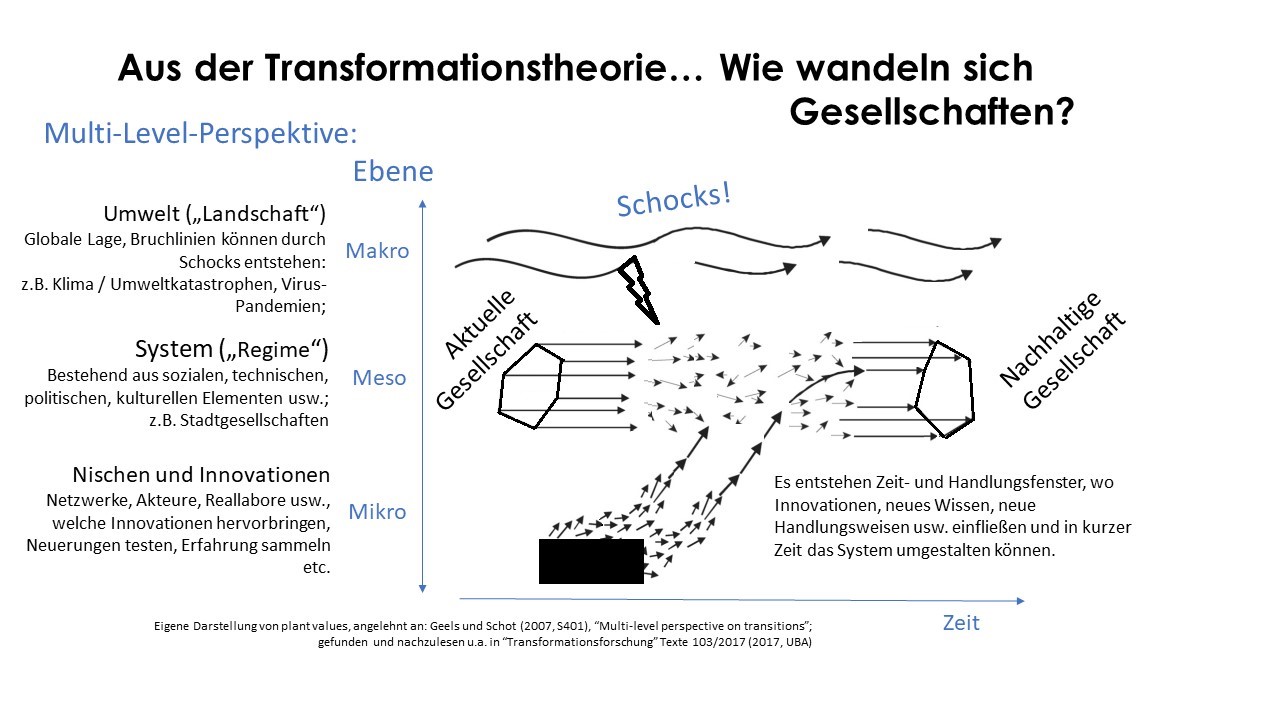
This presentation of plant values is based on Geels and Schot's "Multi-Level perspective on transitions" (2007). This was inspired, among other things, by the article in the tjg on 15 March 2020 by Dr Markus Egermann from Leibniz Institute of Ecological Urban and Regional Development (IOER)which are also accompanying the Dresden City of the Future process. Based on this, we explained transformation approaches for society as a whole in more detail in the plant values academy on 16 April 2020. Here we have shown why experimental spaces and the training of new experts as well as the experiences of such real-world laboratories and the testing of innovations are important for sustainable development. Find out more in our blog post about the academy.
plans values accompanies transformation processes
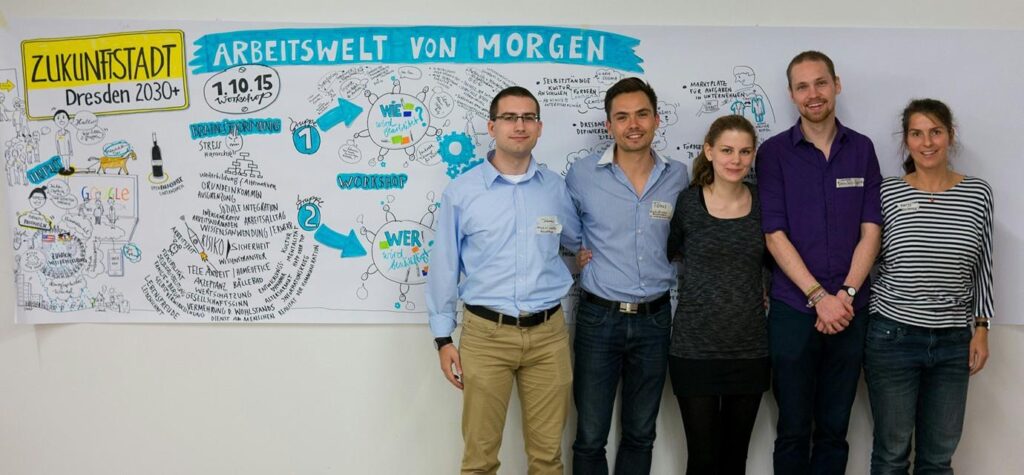
In the first phase in 2015, the plant values team carried out around ¼ of all participation formats and thus played a key role in the development of the vision for the future. The next phase in 2017 focussed on the further development of this vision, including the perspective of companies. To this end, plant values conducted interviews with business representatives and was thus able to feed back ideas from the City of the Future project into Dresden's companies.
The result of the process is a comprehensive, detailed Image of the future of Dresdenof what the city should look like in 2030: Characterised by respectful, neighbourly coexistence, a resilient urban society is developing that aligns its development with the global sustainability goals (SDG) of the United Nations. Dresden thus fits in with the BMBF's requirement to be a role model for sustainable urban development.
The pilot projects have been running since 2019. As a partner, plant values accompanies the sukuma arts e.V. the transformation of Dresden companies. Initially, work will be carried out with the tjg Dresden ("theatre junge generation") and a sustainable theatre operation of the future will be tested. Subsequently, the experience and knowledge gained can be used to make the theatre sustainable and fit for the future.

The next pilot project will take place from autumn 2020 with another stakeholder in urban society, Stadtentwässerung Dresden GmbH. Here, too, sustainable corporate processes are to be learnt and experienced today in order to encourage sustainable corporate development.
The individual steps that need to be developed jointly and taken together with the respective workforces, is published in the blog on the Future City pilot project vividly documented.
plant values is convinced that sustainability must ultimately be anchored as a central core in the respective companies and organisations. Corporate development should also be guided by a sustainability mission statement. This could, for example, be inspired by the vision for Dresden in 2030.
Ultimately, the challenge is that each organisation must find a strategy tailored to its individual needs in order to contribute to the sustainable development of urban society.
Testing, establishing and (further) developing corporate sustainability
The approach of transforming existing companies towards sustainable business is flanked by the approach of establishing new initiatives and new companies, e.g. as social start-ups or green start-ups. If ideas have proven to be practicable in the pilot project phase, one way can be to develop a sustainable business model from them. This allows the idea to grow and have a lasting impact. In this phase, the pioneers of the city of the future face new challenges: How do I generate income to continue investing in my idea, what expenses do I need to calculate? Which customers do I address where and with which messages? Which legal form suits the project? How can I design my organisation to be sustainable and socially responsible internally? plant values supports and accompanies these processes with pre-foundation counselling and coaching during the start-up phase and after the foundation.
Pilot projects can be conceived entirely in terms of green business or social business. The positive ecological and social effects are stabilised by taking entrepreneurial action. This means that a business model is developed that has a positive impact on society and the environment at the same time, while still generating its own costs (for staff, materials, etc.).
Green start-ups, social start-ups and sustainable business ideas complete the corporate landscape in Dresden. They represent another important piece of the puzzle towards sustainable urban development.
Current development and further outlook
The application and selection of further pilot projects that can then be implemented is currently underway. At this point in time (May 2020), there is a certain amount of uncertainty as to how Dresden's budget lockdown and the development of the coronavirus crisis will continue. Nevertheless, the stakeholders and project partners remain active and are driving sustainable urban development forward. There are also still opportunities for dialogue. It is also worth taking a look at the Website City of the Future Dresden or on twitter, where regular updates are made: https://twitter.com/zukunftsstadtdd
We hope that this blog post has inspired, interested and motivated even more people and organisations to join us on the road to Dresden, the city of the future.
Further links:
- Project page City of the Future Dresden: https://www.zukunftsstadt-dresden.de/
- Transforming companies sustainably: https://www.nachhaltigkeit-unternehmen.de/
- Interview with project manager Rico Schwibs: https://www.bmbf.de/de/wie-menschen-sich-ihre-stadt-der-zukunft-bauen-10333.html
- The cities Bocholt,Dresden,Friedrichsstadt,Gelsenkirchen,Loitz,Lüneburg,NorderstedtandUlmare the winners of the City of the Future competition organised by the Federal Ministry of Education and Research (BMBF). They can now present their ideas for a Sustainable developmentthat citizens have developed together with the scientific community: https://www.innovationsplattform-zukunftsstadt.de/
________
plans values accompanies startups and companies for a sustainable transformation
plant values: We support public institutions and established companies in the sustainable transformation of their business models and accompany green and social start-ups and young companies in building a holistically sustainable business. Our approach is to enable our partners to carry out an independent, continuous transformation and to establish sustainable business practices in the long term.
